Who We Are
Scientific Advisory Board
Deborah Backus

Deborah Backus, PT, PhD is Director of Multiple Sclerosis Research at the Shepherd Center in Atlanta, Georgia. Dr. Backus received her B.S. in Physical Therapy in 1986, and her Ph.D. in neuroscience in 2004. She has combined her experiences as a physical therapist, researcher and educator to empower people with neurological injury or disease, such as multiple sclerosis (MS) and spinal cord injury (SCI), to attain the highest quality of life possible. Her research in the Eula C. and Andrew C. Carlos MS Rehabilitation and Wellness Program at Shepherd Center is focused on three related areas: the assessment of the health and wellness needs of people at varying stages of MS; the evaluation of rehabilitation and exercise interventions that may be beneficial to facilitate greater health and function in people with MS; and the development of relevant, effective and cost-efficient programs to improve health and decrease disability across the lifespan in people living with MS. Dr. Backus is also a blogger for the online patient resource, Health Care Journey. She’s a recipient of the 2013 American Congress of Rehabilitation Medicine Deborah L. Wilkerson Early Career Award in Rehabilitation Research and the 2010 Distinguished Clinical/Research Award from the Therapist Leadership Council of the Academy of Spinal Cord Injury Professionals. Dr. Backus was recently named a Fellow of ACRM in recognition of her contributions to rehabilitation research.
Gavin Giovannoni
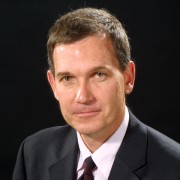 Gavin Giovannoni was appointed to the Chair of Neurology, Blizard Institute of Cell and Molecular Science, Barts and The London School of Medicine and Dentistry and the Department of Neurology, Barts and The London NHS Trust in November 2006. He earned his Ph.D. in immunology from the University of London in 1998. He was appointed as a Clinical Senior Lecturer, Royal Free and University College Medical School, in 1998 and moved back to Queen Square in 1999. He was made a Reader in Neuroimmunology in 2004. His clinical interests are multiple sclerosis and other inflammatory disorders of the central nervous system. He is particularly interested in clinical issues related to optimizing MS disease-modifying therapies. Other interests are immune-mediated movement disorders. Professor Giovannoni's current research is focused on Epstein-Barr virus as a possible cause of MS, MS-related neurodegeneration, MS biomarker discovery, MS clinical outcome measures, MS clinical trials and an immune tolerance strategy.
Gavin Giovannoni was appointed to the Chair of Neurology, Blizard Institute of Cell and Molecular Science, Barts and The London School of Medicine and Dentistry and the Department of Neurology, Barts and The London NHS Trust in November 2006. He earned his Ph.D. in immunology from the University of London in 1998. He was appointed as a Clinical Senior Lecturer, Royal Free and University College Medical School, in 1998 and moved back to Queen Square in 1999. He was made a Reader in Neuroimmunology in 2004. His clinical interests are multiple sclerosis and other inflammatory disorders of the central nervous system. He is particularly interested in clinical issues related to optimizing MS disease-modifying therapies. Other interests are immune-mediated movement disorders. Professor Giovannoni's current research is focused on Epstein-Barr virus as a possible cause of MS, MS-related neurodegeneration, MS biomarker discovery, MS clinical outcome measures, MS clinical trials and an immune tolerance strategy.
Pierre-Antoine Gourraud
 Pierre-Antoine Gourraud is assistant professor in the University of California, San Francisco, Department of Neurology. He is a former student of the Ecole Normale Supérieure de Lyon. After receiving an M.P.H. from University Paris XIII in 2002, he got his Ph.D. in Immunogenetic Epidemiology and Public Health from Toulouse University in 2005. Soon afterward, he obtained a joint appointment at the Toulouse Hospitals and the Toulouse University in the Department of Public Health. He soon relocated to the United States to do his postdoctoral research in neuroimmunogenetics of multiple sclerosis at UCSF. In 2011, he joined the UCSF faculty. Dr Gourraud has established numerous research collaborations with investigators from all over the world: He developed bioinformatics tools for the study of MHC microsatellites for the dbMHC website at the National Center for Biotechnology Information, performed numerous genetic association studies on various diseases (rheumatoid arthritis, multiple sclerosis, and leukemia), and also conducted population genetics analyses of European populations (HLA and KIR genes). He developed software dedicated to statistical genetics in the estimation of linkage disequilibrium (Estihaplo) and designed an algorithm to help search for hematopoietic stem cell donors for the treatment of hematological diseases (Easymatch). In 2008, Dr. Gourraud received an undergraduate degree with honors in Philosophy from Toulouse Catholic University, which reinforced his interest in the ethical, legal, and social implications of genetics research.
Pierre-Antoine Gourraud is assistant professor in the University of California, San Francisco, Department of Neurology. He is a former student of the Ecole Normale Supérieure de Lyon. After receiving an M.P.H. from University Paris XIII in 2002, he got his Ph.D. in Immunogenetic Epidemiology and Public Health from Toulouse University in 2005. Soon afterward, he obtained a joint appointment at the Toulouse Hospitals and the Toulouse University in the Department of Public Health. He soon relocated to the United States to do his postdoctoral research in neuroimmunogenetics of multiple sclerosis at UCSF. In 2011, he joined the UCSF faculty. Dr Gourraud has established numerous research collaborations with investigators from all over the world: He developed bioinformatics tools for the study of MHC microsatellites for the dbMHC website at the National Center for Biotechnology Information, performed numerous genetic association studies on various diseases (rheumatoid arthritis, multiple sclerosis, and leukemia), and also conducted population genetics analyses of European populations (HLA and KIR genes). He developed software dedicated to statistical genetics in the estimation of linkage disequilibrium (Estihaplo) and designed an algorithm to help search for hematopoietic stem cell donors for the treatment of hematological diseases (Easymatch). In 2008, Dr. Gourraud received an undergraduate degree with honors in Philosophy from Toulouse Catholic University, which reinforced his interest in the ethical, legal, and social implications of genetics research.
May Han
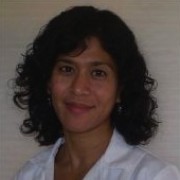 May Han is an assistant professor in Neurology & Neurological Sciences at Stanford University. Dr. Han is a board-certified neurologist specializing in multiple sclerosis and demyelinating disorders of the central nervous system. Dr. Han is also a clinician-scientist whose research focuses on identification of biomarkers and therapeutic targets in multiple sclerosis and neuromyelitis optica. She utilizes Systems Biology approaches such as proteomics and transcriptomics. She received her medical degree in Myanmar and completed a Neurology residency at University of Washington, Seattle. She trained with Dr. John Glomset at the Howard Hughes Medical Institute (UW, Seattle, WA) as a postdoctoral fellow. She also did a translational fellowship at Stanford with Dr. Larry Steinman. She joined the Neurology department and MS Center at Stanford in 2009.
May Han is an assistant professor in Neurology & Neurological Sciences at Stanford University. Dr. Han is a board-certified neurologist specializing in multiple sclerosis and demyelinating disorders of the central nervous system. Dr. Han is also a clinician-scientist whose research focuses on identification of biomarkers and therapeutic targets in multiple sclerosis and neuromyelitis optica. She utilizes Systems Biology approaches such as proteomics and transcriptomics. She received her medical degree in Myanmar and completed a Neurology residency at University of Washington, Seattle. She trained with Dr. John Glomset at the Howard Hughes Medical Institute (UW, Seattle, WA) as a postdoctoral fellow. She also did a translational fellowship at Stanford with Dr. Larry Steinman. She joined the Neurology department and MS Center at Stanford in 2009.
Daniel Kantor
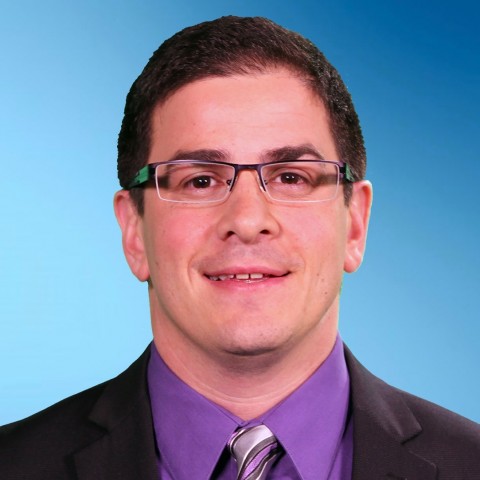 Daniel Kantor, MD, FAAN practices neurology in Coconut Creek, Florida. His professional pursuits include symptomatic treatment of MS, headache in MS, patient-centered neurologic care, medical ethics, and medical education. He is a principal investigator in multiple MS clinical trials (phase 1-4). He is founder of the Medical Partnership 4 MS (MP4MS) and Chief Medical Correspondent for MSWorld. In addition, Dr. Kantor is a member of the Florida NeuroAlliance, and an active member of the Multiple Sclerosis Foundation Healthcare Advisory Board and the Multiple Sclerosis Association of America Healthcare Advisory Council. After receiving a B.A. (English -- Literary Theory) and B.S.E. (Computer Science & Engineering) from the University of Pennsylvania, Dr. Kantor received his M.D. from the Columbia University Medical Center – Ben-Gurion University of the Negev Medical School Collaboration for International Health and Medicine. He interned at the University of Medicine and Dentistry of New Jersey/Cooper University Hospital and trained in neurology at Thomas Jefferson University in Philadelphia, Pennsylvania.
Daniel Kantor, MD, FAAN practices neurology in Coconut Creek, Florida. His professional pursuits include symptomatic treatment of MS, headache in MS, patient-centered neurologic care, medical ethics, and medical education. He is a principal investigator in multiple MS clinical trials (phase 1-4). He is founder of the Medical Partnership 4 MS (MP4MS) and Chief Medical Correspondent for MSWorld. In addition, Dr. Kantor is a member of the Florida NeuroAlliance, and an active member of the Multiple Sclerosis Foundation Healthcare Advisory Board and the Multiple Sclerosis Association of America Healthcare Advisory Council. After receiving a B.A. (English -- Literary Theory) and B.S.E. (Computer Science & Engineering) from the University of Pennsylvania, Dr. Kantor received his M.D. from the Columbia University Medical Center – Ben-Gurion University of the Negev Medical School Collaboration for International Health and Medicine. He interned at the University of Medicine and Dentistry of New Jersey/Cooper University Hospital and trained in neurology at Thomas Jefferson University in Philadelphia, Pennsylvania.
Henry McFarland
Henry F. McFarland is the retired Chief of the Neuroimmunology Branch of the National Institute of Neurological Disorders and Stroke (NINDS). He received his B.A. degree from the University of Arizona and his M.D. in 1966 from the University of Colorado. Following a residency in neurology at Thomas Jefferson University, Dr. McFarland did postdoctoral research in neurovirology at Johns Hopkins School of Medicine and in immunology at University College London, before returning to Johns Hopkins as a neurologist. In 1994, Dr. McFarland became Chief of the Neuroimmunology Branch of NINDS. He retired from this position in 2010.
Daniel Reich
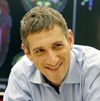
Daniel Reich directs the Translational Neuroradiology Unit in the National Institute of Neurological Disorders and Stroke, part of NIH. In his practice as a neuroradiologist, he cares for patients with multiple sclerosis and other neurological diseases, and he also leads several clinical studies focusing on multiple sclerosis. Research in Dr. Reich’s lab focuses on the use of advanced MRI techniques to understand the sources of disability in multiple sclerosis and on ways of adapting those techniques for use in research trials and patient care. He is particularly interested in harnessing noninvasive imaging modalities to dissect biological mechanisms of tissue damage.
Haley Titus-Mitchell
 Haley Titus, Ph.D. is a National MS Society (NMSS) post-doctoral fellow in the lab of Dr. Stephen D. Miller at Northwestern University Feinberg School of Medicine in Chicago, IL with a focus on selective immune suppression and myelin repair. She received her B.A. from Miami University with a minor in Neuroscience in 2007, her M.S. in Anatomy from Wright State University, Boonshoft School of Medicine in 2009, and her Ph.D. in Neuroscience from the University of Cincinnati College of Medicine in 2015. She has a strong background in neuroscience; specifically in neurodegeneration and repair through her work on peripheral nerve injury and neuro-oncology. Her personal and professional life goal is to cure MS, as her mother has secondary progressive MS. She is an active philanthropist in her local community and is heavily involved as a board member in her local NMSS chapter.
Haley Titus, Ph.D. is a National MS Society (NMSS) post-doctoral fellow in the lab of Dr. Stephen D. Miller at Northwestern University Feinberg School of Medicine in Chicago, IL with a focus on selective immune suppression and myelin repair. She received her B.A. from Miami University with a minor in Neuroscience in 2007, her M.S. in Anatomy from Wright State University, Boonshoft School of Medicine in 2009, and her Ph.D. in Neuroscience from the University of Cincinnati College of Medicine in 2015. She has a strong background in neuroscience; specifically in neurodegeneration and repair through her work on peripheral nerve injury and neuro-oncology. Her personal and professional life goal is to cure MS, as her mother has secondary progressive MS. She is an active philanthropist in her local community and is heavily involved as a board member in her local NMSS chapter.
Project Direction
Tim Clark, Director of Informatics, MassGeneral Institute for Neurodegenerative Disease

Tim Clark is Director of Informatics at the MassGeneral Institute for Neurodegenerative Disease and an Instructor in Neurology at Harvard Medical School. His research group is based in the neurology department of Massachusetts General Hospital, and its members explore new applications for neuroinformatics, Semantic Web, and social computing. The team is developing the Science Collaboration Framework, the software toolkit on which the Multiple Sclerosis Discovery Forum is built. Previously, the SCF team worked with the Michael J. Fox Foundation to develop PD Online Research, a web community of Parkinson’s disease researchers, and with the Harvard Stem Cell Institute to launch StemBook, a collection of online reviews on stem cell research. Tim was formerly vice president of informatics at Millennium Pharmaceuticals, where his team built one of the first integrated bio- and chemi-informatics software platforms in the pharmaceutical industry. He began his career in life science informatics at the National Center for Biotechnology Information, where he led the database development team for GenBank.
Hollie Schmidt, VP of Scientific Operations, Accelerated Cure Project for MS
 Hollie Schmidt is the Vice President of Scientific Operations at Accelerated Cure Project for Multiple Sclerosis. Her role includes top-level direction of ACP's Sample and Data Repository, which provides highly characterized serum, plasma, DNA, RNA, and cells from people with demyelinating diseases and controls to scientists worldwide. She also oversees the content and community-building elements of the Multiple Sclerosis Discovery Forum. Before joining ACP, Hollie's endeavors included co-founding the management consulting firm Lifting Mind as well as co-founding two software companies, Midnight Networks and NorthStar Internetworking. Hollie has an MS in Management, as well as a B.S. and M.S. in Materials Science and Engineering, all from the the Massachusetts Institute of Technology. She is active in MIT alumni efforts and has served as Chair of the Technology Day Committee, global board member of the MIT Enterprise Forum, and judge for the Lemelson-MIT Student Prize. She also serves on the Institutional Review Board of Beth Israel Deaconess Medical Center. In 2005, Hollie was selected as an honoree in the Mass High Tech "Women to Watch" awards.
Hollie Schmidt is the Vice President of Scientific Operations at Accelerated Cure Project for Multiple Sclerosis. Her role includes top-level direction of ACP's Sample and Data Repository, which provides highly characterized serum, plasma, DNA, RNA, and cells from people with demyelinating diseases and controls to scientists worldwide. She also oversees the content and community-building elements of the Multiple Sclerosis Discovery Forum. Before joining ACP, Hollie's endeavors included co-founding the management consulting firm Lifting Mind as well as co-founding two software companies, Midnight Networks and NorthStar Internetworking. Hollie has an MS in Management, as well as a B.S. and M.S. in Materials Science and Engineering, all from the the Massachusetts Institute of Technology. She is active in MIT alumni efforts and has served as Chair of the Technology Day Committee, global board member of the MIT Enterprise Forum, and judge for the Lemelson-MIT Student Prize. She also serves on the Institutional Review Board of Beth Israel Deaconess Medical Center. In 2005, Hollie was selected as an honoree in the Mass High Tech "Women to Watch" awards.
Editorial Staff
Carol Cruzan Morton, Executive Editor, Multiple Sclerosis Discovery Forum
Carol joined MSDF as a senior science journalist in September 2012 and became executive editor in September 2015. She strongly believes that online science journalism can do a better job than traditional media in providing more thoughtful and meaningful coverage that better reflects how science works and how those ideas may change our lives. And she knows that great science journalism can make a real difference to advance research and improve the lives of people with MS and related demyelinating disorders. Growing up, the Morton family motto was “education begins with family,” and Carol's parents involved her deeply in their roles as physician-researcher and community leader. She studied science, but turned to journalism to enlighten her fellow citizens about the wonders and astonishments of the natural world and to equip them with the realities, risks, and promise of science and technology. At Harvard Medical School, she covered more than 700 studies in genetics, immunology, cell biology, public health and more for a research newsletter targeted to the 13,000 scientists and clinicians in the 18 affiliated institutions of the Harvard medical community. For local and national journalism organizations, she has led professional development efforts in online storytelling and community building, data journalism, and multimedia reporting. For 35 years, she has contributed articles to national magazines and major newspapers, such as the Boston Globe, and has consulted for online start-up publications in medical and science journalism.
Heather McDonald, Principal Drug-Database Pipeline Curator, MS Discovery Forum
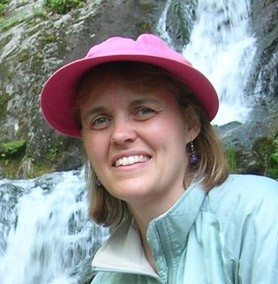 Heather McDonald received her B.A. from Washington University in St. Louis and her Ph.D. from Harvard University's Department of Cellular and Developmental Biology, where she studied microtubule motors in Drosophila. As a postdoctoral fellow at the University of Washington and faculty member at a liberal arts college, she studied centrosome duplication in yeast. She served as an Associate Editor for Science's website on aging (Science of Aging Knowledge Environment, SAGE KE) and as a Consulting Editor for Science Translational Medicine, as well as Manager of Fungal Databases at BioBase and Product Manager and Scientific Illustrator at Garbrook Knowledge Resources. Besides scientific writing and editing, her interests include the application of digital modeling and illustration to biological science. Toward that end, she received a certificate in digital imaging from the Corcoran College of Art + Design.
Heather McDonald received her B.A. from Washington University in St. Louis and her Ph.D. from Harvard University's Department of Cellular and Developmental Biology, where she studied microtubule motors in Drosophila. As a postdoctoral fellow at the University of Washington and faculty member at a liberal arts college, she studied centrosome duplication in yeast. She served as an Associate Editor for Science's website on aging (Science of Aging Knowledge Environment, SAGE KE) and as a Consulting Editor for Science Translational Medicine, as well as Manager of Fungal Databases at BioBase and Product Manager and Scientific Illustrator at Garbrook Knowledge Resources. Besides scientific writing and editing, her interests include the application of digital modeling and illustration to biological science. Toward that end, she received a certificate in digital imaging from the Corcoran College of Art + Design.
Dan Keller, Ph.D., Podcast Producer and Announcer, Freelance Science Journalist
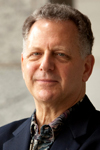 Daniel Keller is the founder of Keller Broadcasting, a firm specializing in the production of written, audio, and video programs in medicine and biotechnology. He holds a Ph.D. in microbiology and immunology from the School of Medicine and Dentistry at the University of Rochester, where he also earned his B.A. in biology and psychology. He was a Leukemia Society of America Postdoctoral Scholar while doing research in immunology and in hematology at the University of California, San Diego School of Medicine. He has also held predoctoral and postdoctoral fellowships from the National Institutes of Health, and he has research experience in neuroendocrinology. He has published in the fields of microbiology, immunology, and hematology. He then pursued training in journalism and founded Keller Broadcasting in 1984. The firm has produced audio, video, radio, and podcast programs for professional organizations and major corporations. Audiences include health care providers, patients, and the public. Keller Broadcasting was a partner in the development, production, and distribution of "The Future of Medicine" radio series that aired nationwide on public radio and commercial stations. The series covered a diverse range of topics, including basic and clinical research, bioethics, and policy issues. For four years, Keller Broadcasting produced "The State of the Heart" radio series for the American Heart Association. It now produces an audio podcast series for the MS Discovery Forum.
Daniel Keller is the founder of Keller Broadcasting, a firm specializing in the production of written, audio, and video programs in medicine and biotechnology. He holds a Ph.D. in microbiology and immunology from the School of Medicine and Dentistry at the University of Rochester, where he also earned his B.A. in biology and psychology. He was a Leukemia Society of America Postdoctoral Scholar while doing research in immunology and in hematology at the University of California, San Diego School of Medicine. He has also held predoctoral and postdoctoral fellowships from the National Institutes of Health, and he has research experience in neuroendocrinology. He has published in the fields of microbiology, immunology, and hematology. He then pursued training in journalism and founded Keller Broadcasting in 1984. The firm has produced audio, video, radio, and podcast programs for professional organizations and major corporations. Audiences include health care providers, patients, and the public. Keller Broadcasting was a partner in the development, production, and distribution of "The Future of Medicine" radio series that aired nationwide on public radio and commercial stations. The series covered a diverse range of topics, including basic and clinical research, bioethics, and policy issues. For four years, Keller Broadcasting produced "The State of the Heart" radio series for the American Heart Association. It now produces an audio podcast series for the MS Discovery Forum.
Special thanks to Evelyn Strauss, founding MSDF executive editor; to past MSDF team members Robert Finn, former executive editor, and Cynthia McKelvey for science writing and production; to past MIND Informatics team members Stéphane Corlosquet and Nicholas Maloney for site development and maintenance; and to Heather Kosakowski, Kelly Tchorz, Thomas Mendoza, and Kelsey Forest, who made significant contributions to getting MS Discovery Forum off the ground.
Software-Development Team
Sudeshna Das, Head of Web Development for MS Discovery Forum
 Sudeshna Das is a bioinformatics researcher at the MassGeneral Institute for Neurodegenerative Disease. She is an instructor in neurology at Harvard Medical School and an associate in neuroscience at Massachusetts General Hospital. Her research interests include development of biomedical web communities and repositories that incorporate Semantic Web technologies. She has led the development of several communities including StemBook, PD Online Research, and Pain Research Forum. Sudeshna earned her Ph.D. in biomedical engineering from Boston University, where she studied computational methods for protein structure prediction, and was formerly Associate Director of Computational Science at Millennium Pharmaceuticals.
Sudeshna Das is a bioinformatics researcher at the MassGeneral Institute for Neurodegenerative Disease. She is an instructor in neurology at Harvard Medical School and an associate in neuroscience at Massachusetts General Hospital. Her research interests include development of biomedical web communities and repositories that incorporate Semantic Web technologies. She has led the development of several communities including StemBook, PD Online Research, and Pain Research Forum. Sudeshna earned her Ph.D. in biomedical engineering from Boston University, where she studied computational methods for protein structure prediction, and was formerly Associate Director of Computational Science at Millennium Pharmaceuticals.
M. Emily Merrill, Bioinformatics Engineer
M. Emily Merrill is a bioinformatician and software developer at MIND Informatics. She has a bachelor's degree in biochemistry from Oberlin College and a master's in bioinformatics from Northeastern. Between degrees, she served as a Peace Corps volunteer in Guyana, South America, where she worked with the Region 6 Department of Education to integrate educational technology into local schools. Her primary work is on eXframe, a Drupal-based re-usable software platform that allows researchers to store, share, and analyze their experiment data. eXframe is also the underlying software for the experimental repository of the Stem Cell Commons. There, Emily has dual roles as both bioinformatics software developer and curator. She has worked at MIND Informatics since 2010.
Volunteers
Special thanks to MS Discovery Forum's volunteers, who have contributed many hours of diligent work to the site:
Susan Norris, MSDF Volunteer Coordinator
Diane Chen
Colleen Ellwood
Akanksha Gupta
Jennifer MacArthur
Jacqueline Olender
Elise Passikoff
Sara Pastel
Peter Reinhardt
Special Acknowledgment
We would like to thank June Kinoshita for inspiring the MS Discovery Forum through her pioneering work on the Alzheimer Research Forum, bringing together the Accelerated Cure Project and MassGeneral Institute for Neurodegenerative Disease, and helping to secure funding for the site.


